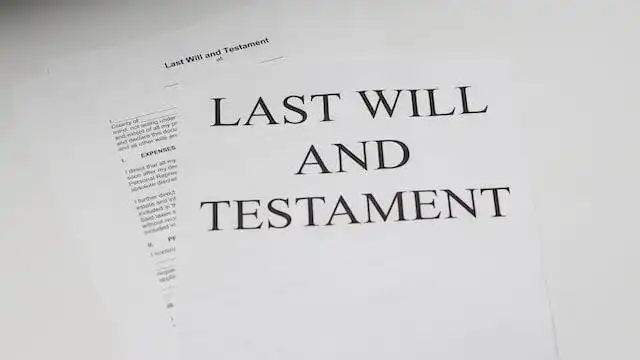
Having a last will and testament drafted is one of those “life admin” tasks that is easy to put off, or at least postpone, because it’s a task for which the deadline – if you’ll excuse the pun – is unknown. And while we all hope this inevitable fate is in the distant future, the best time to get these affairs in order is sooner rather than later.
A will is of particular importance if you own assets like property. “Rather than look at it as a burdensome task that needs to be done, think of it as protecting an asset you worked hard to acquire and making sure your will is in order is a way of ensuring this property – this asset – continues to benefit your family and/or chosen beneficiaries, even after your death,” says Jan le Roux, CEO of Leapfrog Property Group.
Le Roux’s advice is to seek professional assistance in drawing up a will to ensure it stands up to legal scrutiny. “You want to leave a legacy, not an administrative minefield for your loved ones to navigate at a difficult time, so make sure it is done properly, by a professional. This is also the best way to ensure your wishes are carried out as you intended.”
While the stipulations of a will depends on the individual, there are a number of considerations all wills should address as far as property ownership is concerned.
Marriage
Persons married in community of property must bear in mind that, according to this marital regime, they only own half of any asset that is registered in their own name and half of the asset registered to the spouse. This simply means that your spouse is entitled to half of your property upon death, irrespective of how or when the asset was acquired.
Those married in community of property should thus specify in their will what they wish to happen to their half of a property. The options are typically to either sell or bequeath it to the spouse, though you are by no means limited to these options.
Minors
While it is entirely acceptable to bequeath a property to a minor person (children under the age of 18), there will be implications if the property is bonded. Provision for discharging the bond will have to be made in your will, or through life insurance, else the property may have to be sold.
“Consider obtaining professional financial advice to ensure you have policies in place to cover the shortfall on what is owed on a bonded property,” Le Roux advises.
Do it right and revise regularly
As mentioned above, it pays to have a will professionally drawn up by a lawyer, fiduciary expert, auditor or others suitably qualified to do so, but it should also not be done in isolation. “Estate planning and financial planning go hand-in-hand, which is why you want to consult your financial advisor in the process as estate duty, capital gains tax and your overall liquidity can all impact what happens to a property following the owner’s death,” Le Roux explains.
It is important to regard a will as a dynamic, living – if you will – document that should be revised and updated regularly, or as your life situation changes. Events like marriage, divorce, the acquisition of property and the birth of a child are all examples of events that call for your will to be updated so that it reflects the change in circumstances.
Like taxes, death is something we can be certain of. And just like tax planning is a responsible thing to do, so too is drawing up a will – to protect the assets you worked hard for but, more importantly, to ensure your wishes are honoured posthumously
Author: Leapfrog Property Group

